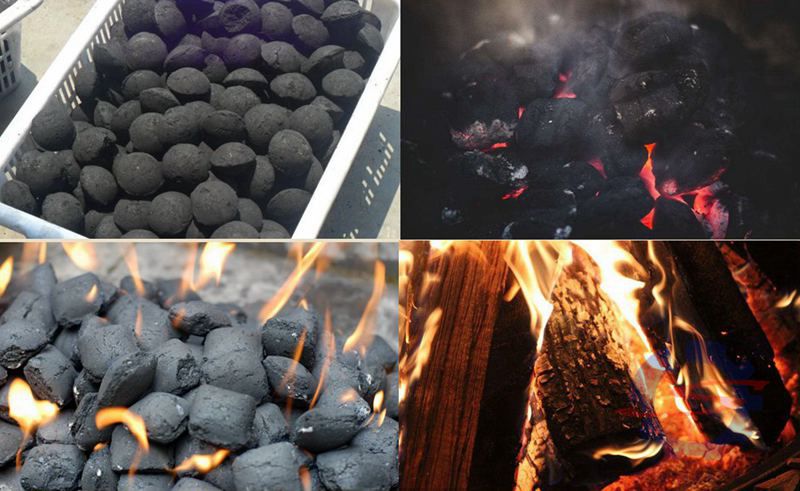Usually, people pay more attention to the use of machine-made charcoal in industry, but the use of machine-made charcoal in people’s lives is rarely understood, so today Shuliy Machinery analyzes the machine-made of charcoal production line production for people in the life of people. What kind of use is there?
The charcoal machine production line fills the raw materials containing biomass fibers that can produce charcoal, such as branches, straw, straw, peanut shells, trunks, cotton straw, tea seed husks, husks, weeds, leaves, etc. and is pulverized into 10 mm by a pulverizer. The powder inside is dried by a dryer to make the moisture content within 12%. After being put into the rod machine by high temperature and high pressure, it is formed (without any additives) and then put into a carbonization furnace for carbonization. Machine-made charcoal. It is also possible to carbonize the material powder directly into a carbon powder using a continuous carbonization furnace.

Charcoal machine production line machine-made Charcoal is a kind of waste renewable energy fuel, which has higher calorific value than the same kind of charcoal. It is higher than ordinary coal, smokeless, tasteless, non-toxic, clean and hygienic. It can be widely used in home heating, barbecue food international The market needs a lot.
It is precisely because of the superior characteristics of the machine-made charcoal smokeless, large heat, and long burning time, it will be more and more popular. There are numerous crisscrossed holes in the charcoal. These holes have the function of adsorbing various substances and emitting adsorbed substances. Therefore, people who know it will use it as a desiccant. When wet, charcoal will automatically absorb moisture. When dry, charcoal will automatically release the absorbed moisture, which will adjust the humidity. In addition, charcoal can also eliminate odors and harmful substances in the room.
In addition to the machine-made we usually understand, charcoal can absorb harmful substances in the room or in the car. The porous material of charcoal can not only retain the water needed for the roots of the plants but also improve the permeability and drainage of the soil, providing good benefits to the microorganisms beneficial to plants. The living space, therefore, the 5%-10% bean-sized charcoal in the flower-potted soil can provide a healthy growth environment for plants; while the garden trees enhance the ability to resist pests and diseases. So some people also choose to put a small piece of charcoal into the plant soil. Today’s decoration concept has begun to pay attention to the characteristics of environmental protection, nature, health, and humanity. Decorative charcoal, using a small space of pores, a bonsai is bred in bauxite.
As people’s living standards continue to improve, more and more people are beginning to pay attention to their living environment, so the machine-made charcoal produced by the charcoal machine production line has also been recognized and used by many people.
